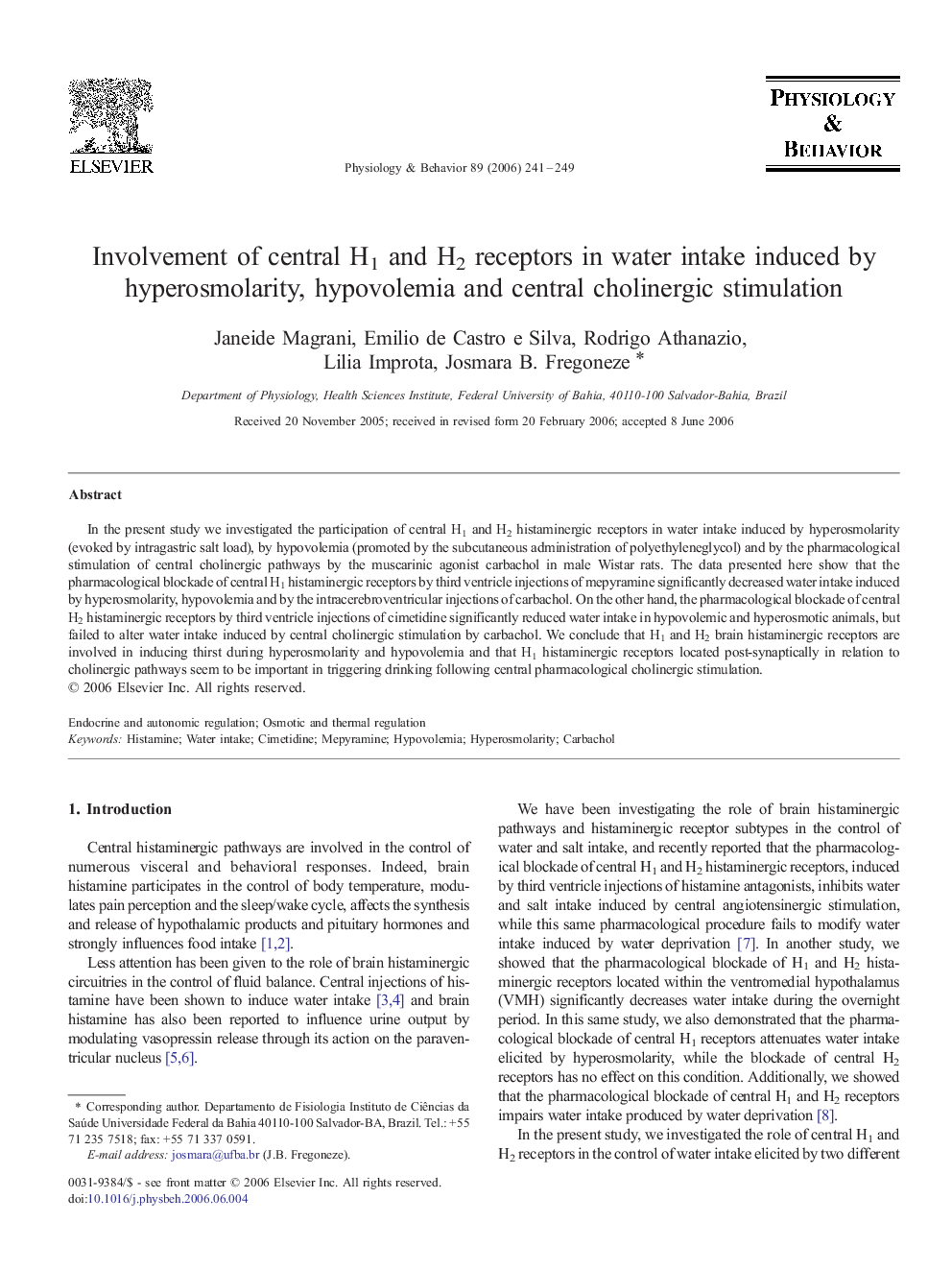| Article ID | Journal | Published Year | Pages | File Type |
|---|---|---|---|---|
| 2846291 | Physiology & Behavior | 2006 | 9 Pages |
In the present study we investigated the participation of central H1 and H2 histaminergic receptors in water intake induced by hyperosmolarity (evoked by intragastric salt load), by hypovolemia (promoted by the subcutaneous administration of polyethyleneglycol) and by the pharmacological stimulation of central cholinergic pathways by the muscarinic agonist carbachol in male Wistar rats. The data presented here show that the pharmacological blockade of central H1 histaminergic receptors by third ventricle injections of mepyramine significantly decreased water intake induced by hyperosmolarity, hypovolemia and by the intracerebroventricular injections of carbachol. On the other hand, the pharmacological blockade of central H2 histaminergic receptors by third ventricle injections of cimetidine significantly reduced water intake in hypovolemic and hyperosmotic animals, but failed to alter water intake induced by central cholinergic stimulation by carbachol. We conclude that H1 and H2 brain histaminergic receptors are involved in inducing thirst during hyperosmolarity and hypovolemia and that H1 histaminergic receptors located post-synaptically in relation to cholinergic pathways seem to be important in triggering drinking following central pharmacological cholinergic stimulation.
